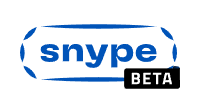Largely unsubstantiated news is circulating rapidly across card groups over the last 24 hours regarding shill bidding on Probstein’s new platform Snype.
Snype had already made news when its first major auction crashed hard. But that might be only the tip of the iceberg. And shilling has been a hot topic this month after seemingly pro-shilling comments from Dr. James Beckett. So this is just fuel on the hobby dumpster fire.
Shill bidding isn’t new and is surely rampant–precisely because it is impossible to prevent. What is shill bidding and why should you care?
Shilling Defined
Shill bidding is the act of placing deliberately fake or collusive bids to artificially inflate the price of an item. At its core, it’s a simple concept. Shill bidding involves a seller (or someone working with them) placing bids on their own item to drive up the final sale price. This not only deceives genuine bidders, but also potentially rigs price “comps” that other collectors use to value their cards. It may cross the line into illegal behavior, and even where it’s not prosecuted, the ethical implications threaten the integrity of auction platforms.
Shill bidding is as old as auctions and the idea that you might be competing against phantom bidders should always be in your mind. But recently, the sports collectibles hobby has been rocked by fresh controversy, involving major players like Rick Probstein’s Snype, Fanatics Collect (and high-profile collector Pat Ryan who was found to be bidding on hos own card), and even recent commentary from Dr. James Beckett himself seemingly defending “defensive bidding.” .
Snype: New Platform, Old Concerns
Snype, the recently launched auction platform by long‑time eBay seller Rick Probstein, was meant to bring innovation — but its debut quickly raised red flags. Shortly after going live, the site reportedly faced “system‑wide technical issues,” causing sniping (last-second bidding) features to misfire and even triggering early auction terminations.
Some users have gone further, accusing Snype of having major backend vulnerabilities that exposed bidder data — including account info and bid histories. On certain flagged listings, clusters of accounts allegedly linked to the seller or associated network placed heavy, synchronized bids, raising suspicions of coordinated bid inflation.
The exposed data, if accurate, appears to be not only damning, but highly illegal:
Fanatics Collect: High-Profile Fallout
A more public face of the debate involves Fanatics Collect, the rebranded auction arm of Fanatics (formerly PWCC). In a widely covered scandal, collector Patrick Ryan admitted that he had placed a large bid — reportedly around $20,000 — on his own card. The lot had been consigned through Acquir into a Fanatics Collect auction. Because Acquir submitted the card on his behalf, Fanatics reportedly didn’t know he was the original owner. Once the issue came to light (via Ryan’s own Instagram), Fanatics pulled the item from auction and temporarily restricted his account.
Dr. James Beckett Weighs In
Perhaps the most scrutinized voice in this debate has been hobby veteran Dr. James Beckett. In a revealing two-part podcast (episodes 1453/1454 of Sports Card Insights), Beckett discussed his conversation with Patrick Ryan about shilling. He openly questioning whether Ryan’s bidding behavior stemmed from a genuine mistake or a more deliberate, “defensive” shill tactic.
In a follow-up episode (1457), Beckett broke down the difference between “defensive” and “offensive” shilling. He noted how difficult it can be to police such behavior. Some hobbyists interpreted a comment from Beckett as an admission that shill bidding is tolerated among insiders. The quote is: “I wasn’t going to let some idiot get a good deal on a card, so we shilled it.”
Regardless of intent, the comment stirred renewed debate across the hobby.
What This Means for Collectors
All of the recent news has me re-thinking some previous auction advice given elsewhere–especially the “win at all costs” approach. New caveat: always assume that you’re bidding against at least one illegitimate bidder.



Good article Matt! I know this isn’t “shill bidding” but the amount of reseller to reseller sales I see on the vintage card group is infuriating. They are reselling to eachother and each time the “value” of the card increases.
I actually tracked an SGC 6 ‘59 Gibson that was sold 3 times between 4 resellers, increasing in price from $1200 to $1850 by the time it landed on the last flippers site. As a collector, this trend is frustrating because 1) it artificially increases value (good and bad) and 2) I can’t beat the flippers to the good deals.
I totally agree–there are all kinds of practices that, while not shilling, still equate to intentional or unintentional market manipulation.
Probstein has been shady as hell for many years and are heavily into shill bidding…can’t believe anyone actually thinks the stuff they buy from Probstein is even REAL…years ago he had a friend in PSA giving out high grades to his cards and they were NOT in stated grade condition, yet people still bought…
I have heard countless stories like this, but never saw anything that was 100% substantiated. If there’s a good source, I would love to read it..